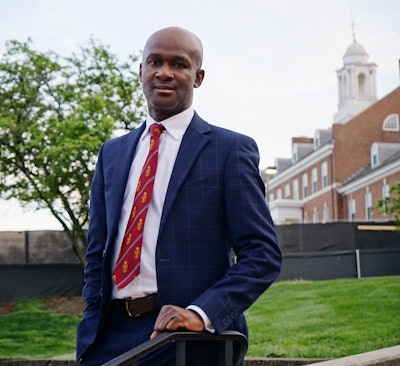A study from Howard University has documented the severe health toll of loneliness while uncovering surprising patterns of resilience among Black and Hispanic adults, findings that could reshape how public health officials address what researchers are calling a "silent public health crisis."
 Dr. Oluwasegun Akinyemi is a senior research fellow at the Clive O. Callender Outcomes Research Center at Howard University.
Dr. Oluwasegun Akinyemi is a senior research fellow at the Clive O. Callender Outcomes Research Center at Howard University.
The study's findings are sobering: individuals who reported "always" feeling lonely were five times more likely to experience clinical depression compared to those who never felt lonely. Over half of chronically lonely participants screened positive for depression, and they reported an average of 11 additional mentally unhealthy days per month and five more physically unhealthy days.
"The magnitude was unexpected," said Akinyemi, a senior research fellow whose background spans obstetrics-gynecology in Nigeria and health services research in the United States. "Over 50% of those who always feel lonely screened positive for depression."
However, the study revealed a striking pattern. Despite experiencing similar levels of loneliness, Black and Hispanic participants consistently reported fewer depression symptoms compared to their white counterparts across all loneliness categories. Among those who always felt lonely, Black individuals had a 25.6 percentage point lower risk of depression and Hispanic individuals had a 14.3 percentage point lower risk compared to white individuals.
"Loneliness is undeniably damaging, but we were struck by the resilience we observed among minority communities," Akinyemi said. "It points to cultural strengths and social ties that may help protect mental health, even when people feel disconnected."
Akinyemi's interest in studying loneliness stems partly from his own experience adapting to American culture after moving from Nigeria, where he was trained as an obstetrician-gynecologist before pursuing graduate degrees in public health and health services research at the University of Maryland.

















